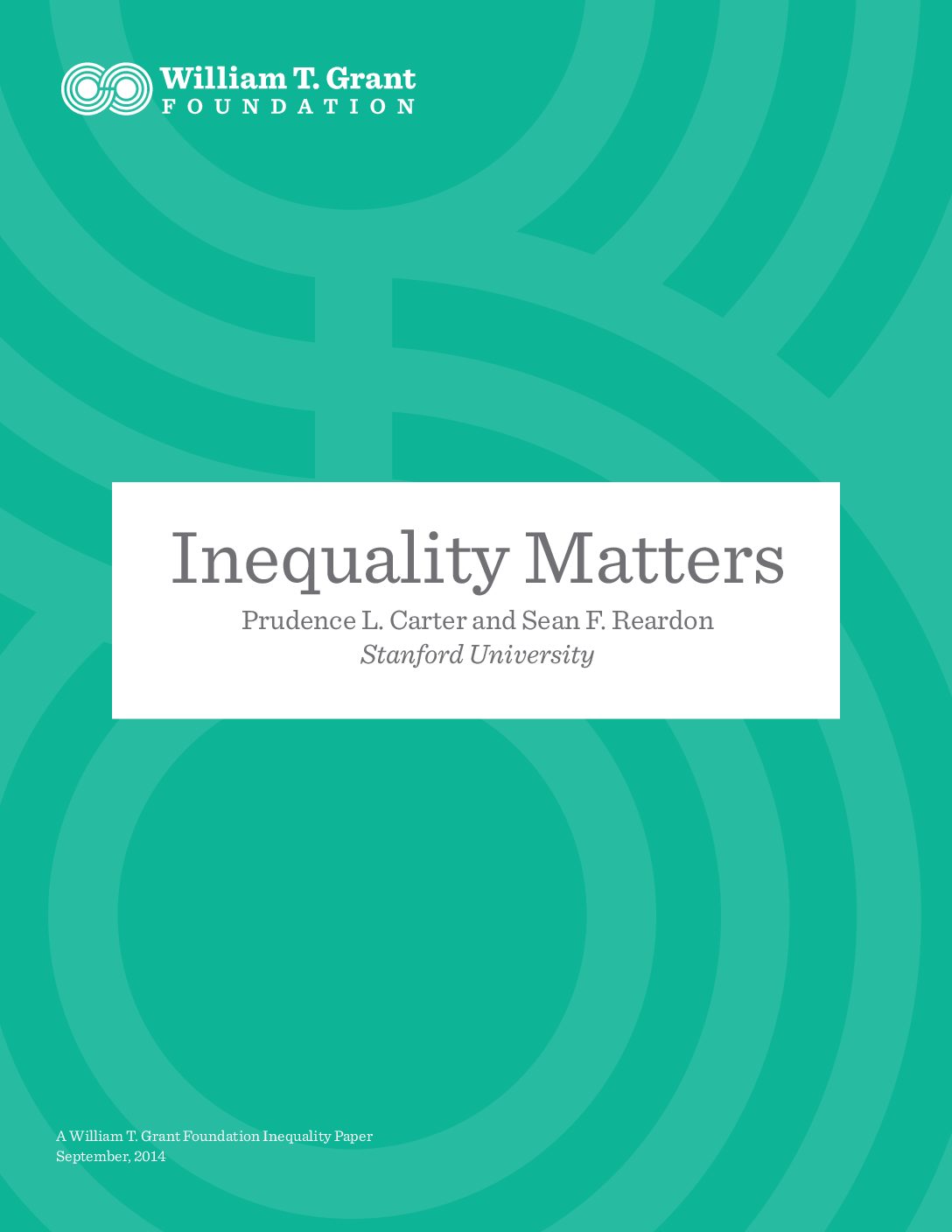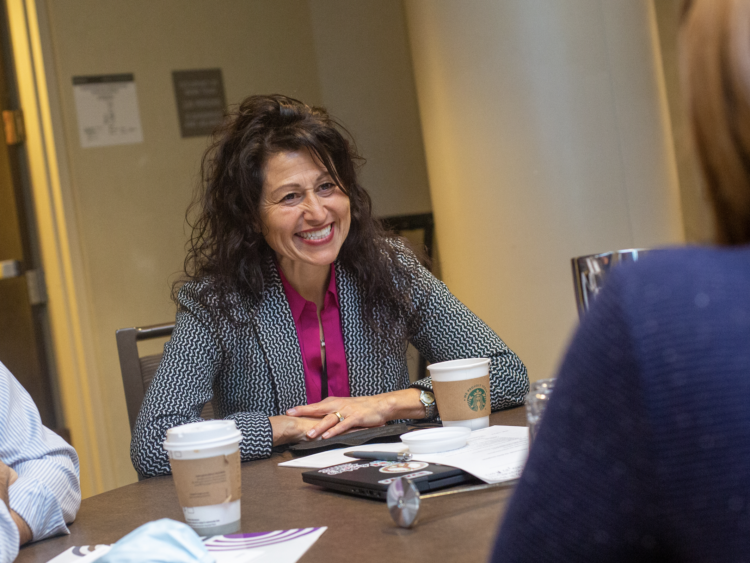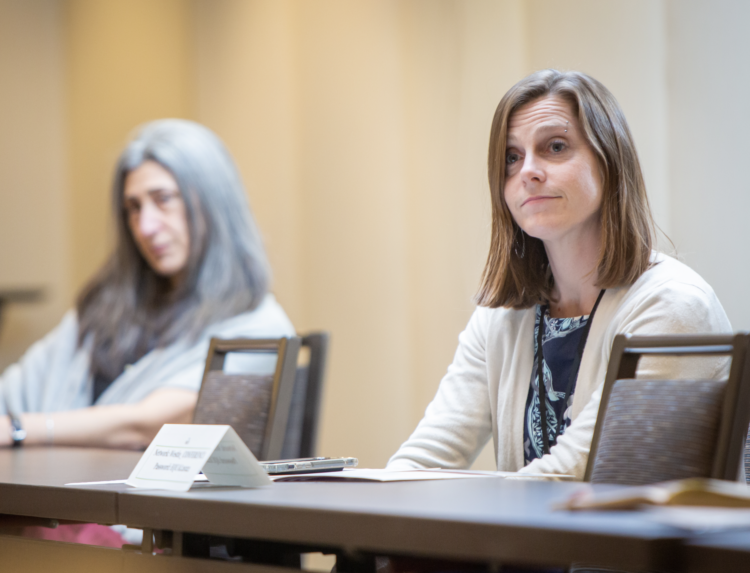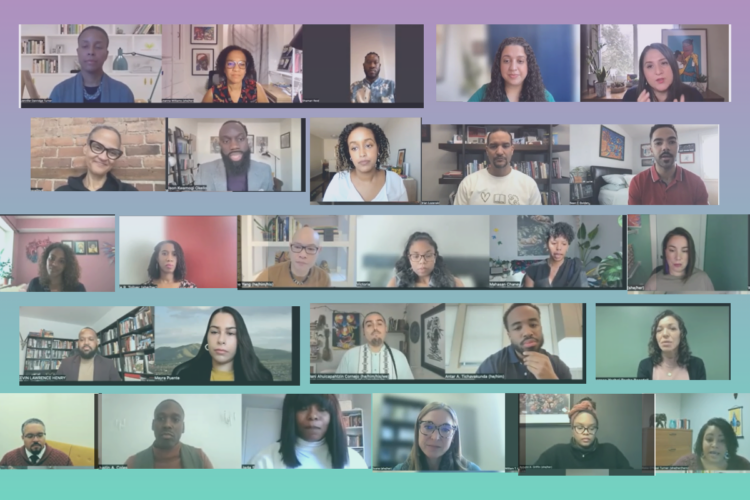My recent six-year stint at the Ford Foundation gave me a chance to support and co-lead a very ambitious project that convened dozens of esteemed scholars, media professionals, and activists to study how scholarly knowledge could confront and help remedy inequality in the US. The project, Building Knowledge for Social Justice, sought responses to inequality not only under the law, but in political, economic, and cultural life. It was in this context that Prudence Carter and Sean Reardon’s paper Inequality Matters had its origins.
The goal of Building Knowledge for Social Justice was to elevate the ways that scholars and their institutions could participate in a movement to reduce inequality in American society. The project began with the premise that scholars engaged in advancing knowledge and promoting public understanding could 1) lay the intellectual foundations for reshaping how Americans make sense of systematic inequality, and 2) help to ground in theory and evidence new policy ideas and advocacy tools for disrupting it. We also examined how best to address the current norms, structures, and practices of scholarship that act as barriers to bringing useful knowledge into the public sphere.
The project made two major recommendations for action by researchers and their institutions. First, scholars across fields should develop research agendas that yield new, and more fully developed, concepts, evidence, and narratives that could help Americans understand how:
- inequality in the US is detrimental to the quality of life for all of us (not just the poor)
- inequality, in large part, is the consequence of social and economic policies—not just a function of individual values and behavior
- it is both possible and desirable to adopt social and economic policies that reduce inequality and advance social justice.
Second, academic institutions should prioritize partnerships with those seeking to solve chronic and rising social and economic problems. This requires both producing and assigning high value to policy-relevant scholarship and research anchored in local communities. Campuses should also establish institutes that bring together academics, media practitioners, community leaders, and activists around research, leadership development, and media/communications, with the goal of shifting current public discourse and policy debates to reduce inequality and advance social justice.
So, what has happened as a result of this project and its findings?
First, in an effort to use compelling new public dissemination strategies, BKSJ project participants worked with the Economic Policy Institute (EPI) and an information visualization firm to develop the inequality.is website. The site uses new media to communicate nearly three decades of EPI’s objective economic research and analysis on the economic status of working America. Aimed at framing the national dialogue on wage and income inequality, the site uses interactive tools and videos to tell the story of how we arrived at today’s inequality and what we can do to reverse course.
Second, to engage research universities in public problem solving, BKSJ’s leadership workgroup co-chairs Susan Sturm (Professor of Law and Social Responsibility and director of the Columbia Law School’s Center for Institutional and Social Change) and Nancy Cantor (now Chancellor of Rutgers University-Newark) are using their leadership positions to move their campuses, and higher education generally, toward “institutional citizenship”—a dual agenda to enable full participation in higher education by people from all communities and backgrounds, and to increase universities’ participation in tackling difficult community challenges. The pair helped craft an amicus brief by a group of academics in the Fisher v. University of Texas affirmative action case, based largely on the deliberations of the BKSJ project’s “transformative leadership” working group. The brief argues that higher education’s role as an engine of mobility, leadership, knowledge generation, and public problem-solving requires that people from all races and backgrounds succeed and become productive citizens and leaders who can engage in collective action to solve problems.
Finally, in an effort to support public intellectuals, the BKSJ project supported the Roosevelt Institute, a non-profit think tank, to intensify its social justice work by identifying, supporting, and amplifying the voices of effective and well-regarded senior scholars in advancing ideas about stemming economic and political inequality in the US. It also strengthened its focus on identifying and supporting the next generation of public intellectuals.
The Building Knowledge for Social Justice project ended formally in 2009, but its work goes on, both in projects like those described here, and in the work of the scholars, activists, and communications professionals who were at the heart of the project. Inequality Matters speaks to its continuing impact. What goes without saying, however, is that there is so much more for all of us to do.






